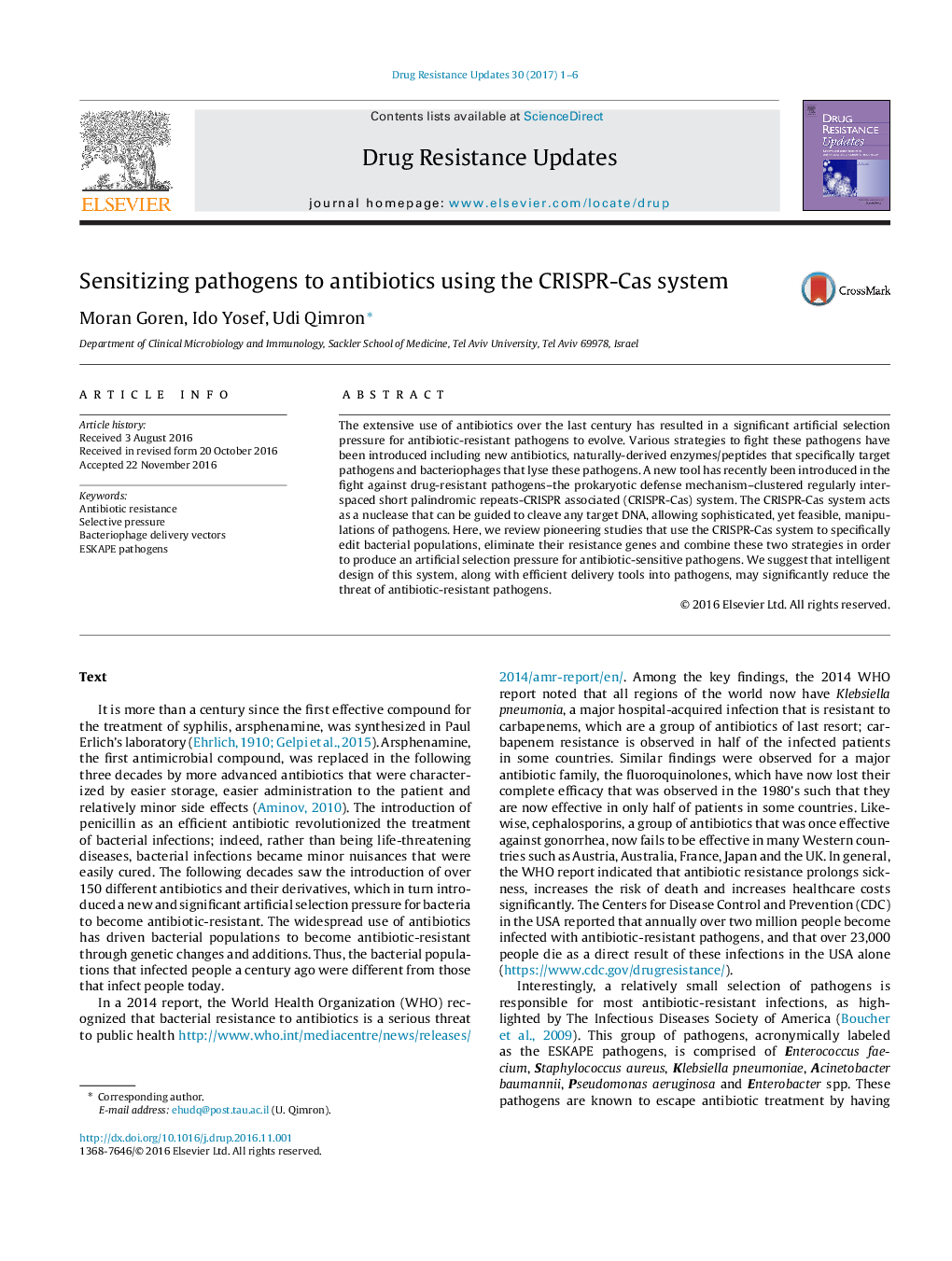| Article ID | Journal | Published Year | Pages | File Type |
|---|---|---|---|---|
| 8436580 | Drug Resistance Updates | 2017 | 6 Pages |
Abstract
The extensive use of antibiotics over the last century has resulted in a significant artificial selection pressure for antibiotic-resistant pathogens to evolve. Various strategies to fight these pathogens have been introduced including new antibiotics, naturally-derived enzymes/peptides that specifically target pathogens and bacteriophages that lyse these pathogens. A new tool has recently been introduced in the fight against drug-resistant pathogens-the prokaryotic defense mechanism-clustered regularly interspaced short palindromic repeats-CRISPR associated (CRISPR-Cas) system. The CRISPR-Cas system acts as a nuclease that can be guided to cleave any target DNA, allowing sophisticated, yet feasible, manipulations of pathogens. Here, we review pioneering studies that use the CRISPR-Cas system to specifically edit bacterial populations, eliminate their resistance genes and combine these two strategies in order to produce an artificial selection pressure for antibiotic-sensitive pathogens. We suggest that intelligent design of this system, along with efficient delivery tools into pathogens, may significantly reduce the threat of antibiotic-resistant pathogens.
Related Topics
Life Sciences
Biochemistry, Genetics and Molecular Biology
Cancer Research
Authors
Moran Goren, Ido Yosef, Udi Qimron,
